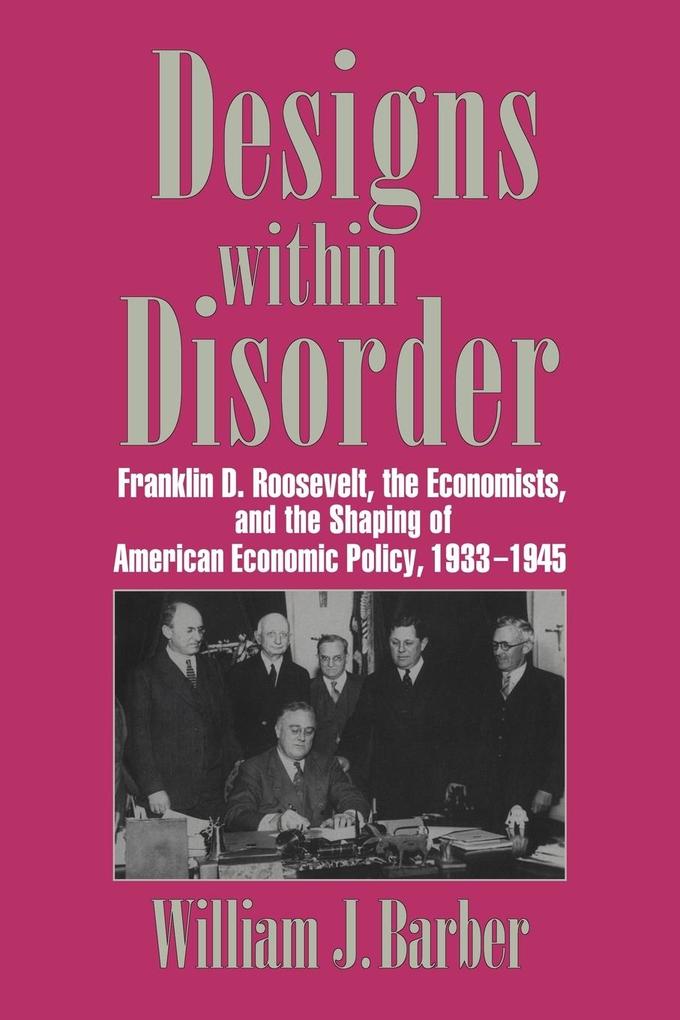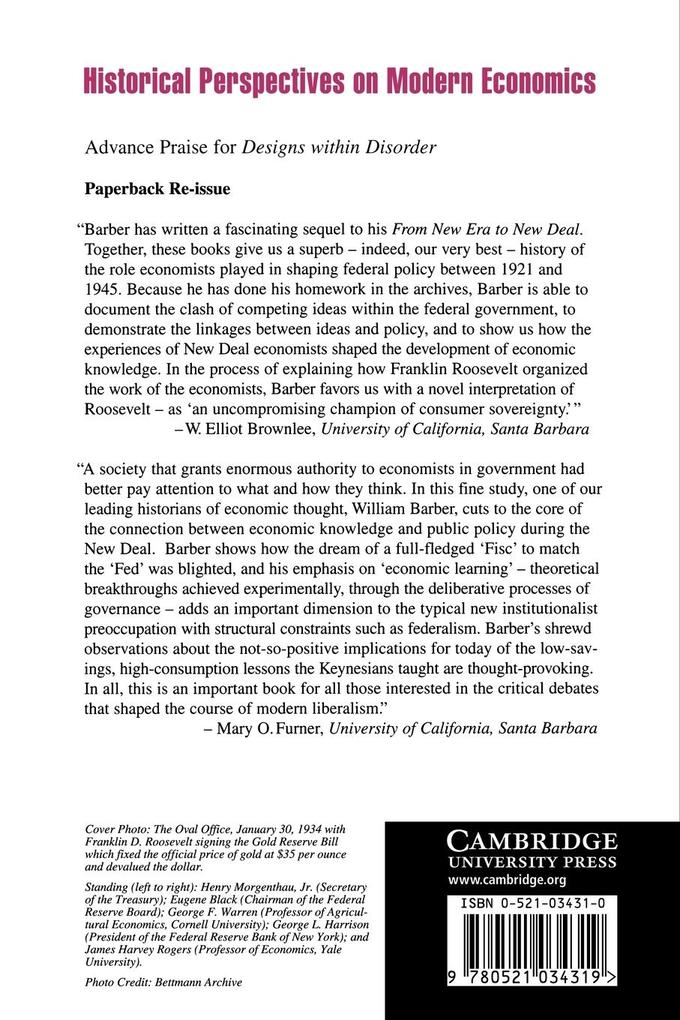
Zustellung: Mo, 21.07. - Do, 24.07.
Versand in 5 Tagen
VersandkostenfreiBestellen & in Filiale abholen:
More than any of his predecessors in the White House, Franklin D. Roosevelt drew heavily on the thinking of economists as he sought to combat the Great Depression, to mobilize the American economy for war, and to chart a new order for the postwar world. Designs within Disorder is an inquiry into how divergent analytic perspectives competed for official favor and how the President chose among them when formulating economic policies. During the Roosevelt years, two "revolutions" were underway simultaneously. One of them involved a fundamental restructuring of the American economy and of the role government was to play in it. A second was an intellectual "revolution", which engaged economists in reconceptualizing the nature of their discipline. Most of the programmatic initiatives Roosevelt put in place displayed a remarkable staying power for over a half century.
Inhaltsverzeichnis
Preface; Guide to abbreviations in citations of sources; Prologue; 1. Stage setting in the presidential campaign of 1932; 2. Curtain raising in the first hundred days; 3. Deployments in the second half of 1933; 4. Rethinking the structuralist agenda (I): the fate of NRA, 1934-5; 5. Rethinking the structuralist agenda (II): the fate of the Agricultural Adjustment Administration, 1934-6; 6. Rethinking macroeconomic strategies, 1934-6; 7. Shock tremors and their repercussions, 1937-8; 8. Toward a new 'official model,' 1939-40; 9. Designs for the management of an economy at war; 10. Designs for the postwar world; Epilogue; Bibliographical note; Index.
Produktdetails
Erscheinungsdatum
27. Oktober 2006
Sprache
englisch
Seitenanzahl
192
Autor/Autorin
William J. Barber
Herausgegeben von
Craufurd D. Goodwin
Verlag/Hersteller
Produktart
kartoniert
Gewicht
287 g
Größe (L/B/H)
229/152/11 mm
ISBN
9780521034319
Entdecken Sie mehr
Pressestimmen
Advance praise: 'Barber has written a fascinating sequel to his From New Era to New Deal. Together, these books give us a superb - indeed, our very best - history of the role economists played in shaping federal policy between 1921 and 1945. Because he has done his homework in the archives, Barber is able to document the clash of competing ideas within the federal government, to demonstrate the linkages between ideas and policy, and to show us how the experiences of New Deal economists shaped the development of economic knowledge. In the process of explaining how Franklin Roosevelt organized the work of the economists, Barber favors us with a novel interpretation of Roosevelt - as 'an uncompromising champion of consumer sovereignty'.' W. Elliot Brownlee, University of California, Santa Barbara Advance praise: 'A society that grants enormous authority to economists in government had better pay attention to what and how they think. In this fine study, one of our leading historians of economic thought, William Barber, cuts to the core of the connection between economic knowledge and public policy during the New Deal. Barber shows how the dream of a full-fledged 'Fisc' to match the 'Fed' was blighted, and his emphasis on 'economic learning' - theoretical breakthroughs achieved experimentally, through the deliberative processes of governance - adds an important dimension to the typical new institutionalist preoccupation with structural constraints such as federalism. Barber;s shrewd observations about the not-so-positive implications for today of the low-savings, high-consumption lessons the Keynesians taught are thought-provoking. In all, this is an important book for all those interested in the critical debates that shaped the course of modern liberalism.' Mary O. Furner, University of California, Santa Barbara
Bewertungen
0 Bewertungen
Es wurden noch keine Bewertungen abgegeben. Schreiben Sie die erste Bewertung zu "Designs Within Disorder" und helfen Sie damit anderen bei der Kaufentscheidung.










